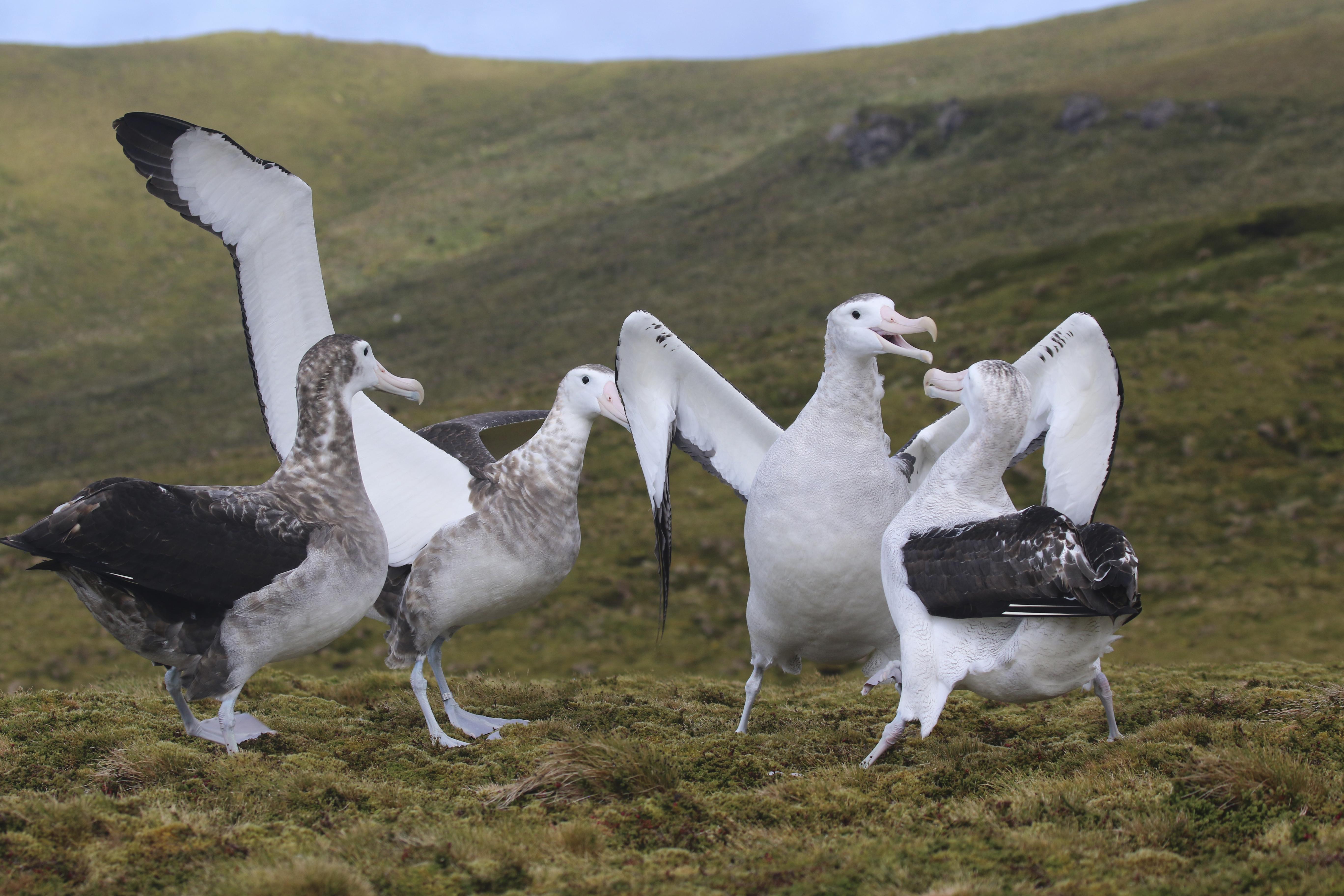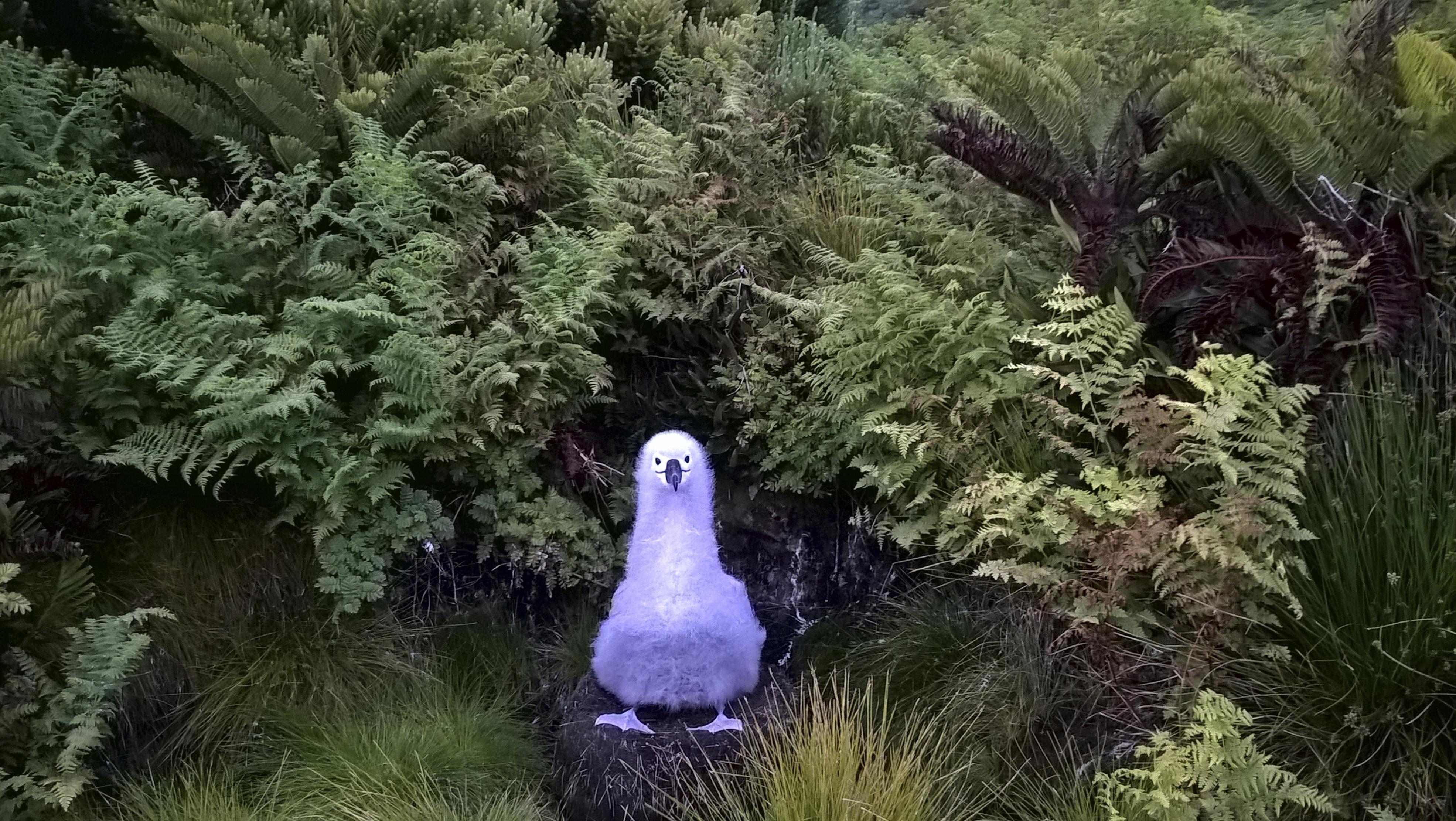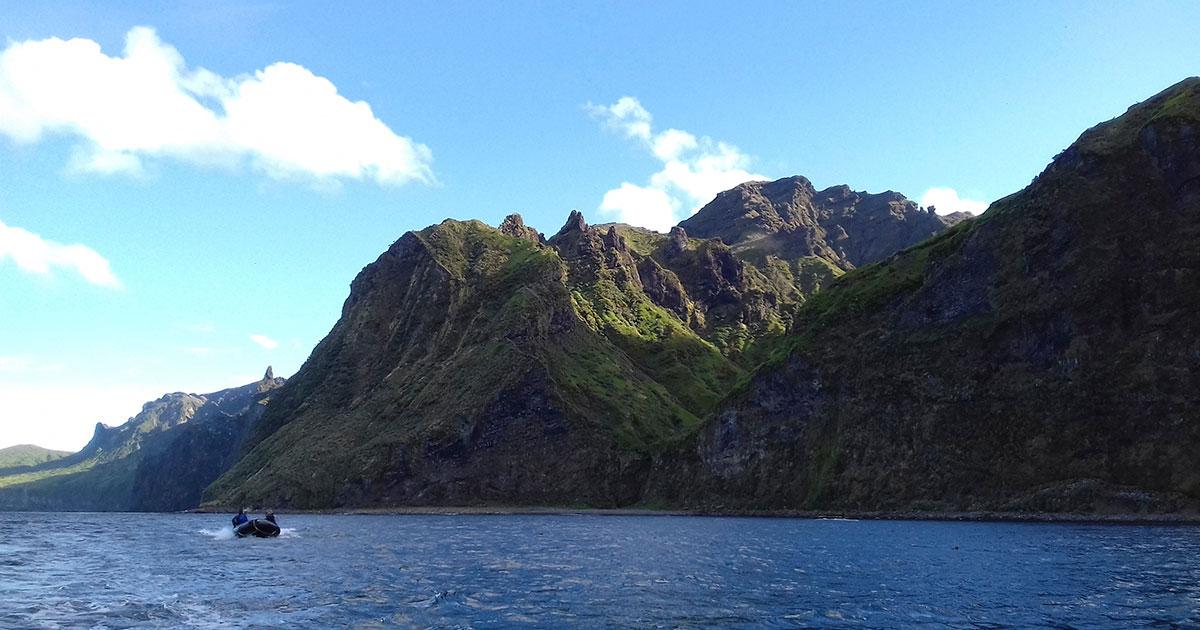- Introduced invasive species have been responsible for hundreds of extinctions, the majority of these on islands.
- Targeting 169 islands - including 20 in the UK’s Overseas Territories - as a priority for restoration via the removal of invasive species would improve the survival chances for nearly 10% of globally threatened birds, mammals, amphibians and reptiles on islands.
- Governments need to fund this work to meet their 2020 nature recovery commitments
Restoring islands by removing damaging, invasive mammals such as rats, cats, goats and pigs could help prevent a disproportionate number of future extinctions according to new research.
 Tristan albatross Diomedea dabbenena, adult courtship dance, Andy Schofield (rspb-images.com)
Tristan albatross Diomedea dabbenena, adult courtship dance, Andy Schofield (rspb-images.com)
The new study published in PLOS ONE found that if introduced mammals were removed from just 169 islands then 9.4 percent of the Earth’s most threatened island species would benefit.
Islands have been hotspots for extinctions and have seen 75 percent of known bird, mammal, amphibian and reptile extinctions since 1500, with many of these losses having been caused by the introduction of non-native species.
“Eradicating invasive mammals from islands is a powerful way to remove a key threat to island species and prevent extinctions and conserve biodiversity”, said Dr Nick Holmes, lead author on the study from Island Conservation. “This study is an invaluable global assessment of where these future conservation opportunities exist and supports regional and national decision-making about where and how to prevent extinctions.”
The paper, titled “Globally important islands where eradicating invasive mammals will benefit highly threatened vertebrates”, ranks islands in order of their priority for restoration. Gough Island, a UK World Heritage Site which is part of the British Overseas Territory of Tristan da Cunha in the South Atlantic, is ranked third and is currently the subject of a planned programme of mouse removal.
On Gough Island, introduced mice are eating seabird chicks at an alarming rate, resulting in two million fewer seabird eggs and chicks on this British island each year and putting some bird species at high risk of extinction.
The RSPB and Tristan da Cunha, together with the UK Government and international partners including Island Conservation, BirdLife South Africa and the South African Department of Environmental Affairs, have developed the Gough Island Restoration Programme. Not letting the challenges of working on one of the world’s most remote islands get in the way, the Gough team is planning to eradicate mice from Gough Island in 2020 to restore it to one of the most important seabird colonies in the world. This will help save two Critically Endangered UK bird species (the Tristan albatross and Gough bunting) from extinction.
 Atlantic yellow-nosed albatross Thalassarche chlororhynchos, Jonathan Hall (rspb-images.com)
Atlantic yellow-nosed albatross Thalassarche chlororhynchos, Jonathan Hall (rspb-images.com)
Overall there are 20 UK Overseas Territory islands in the top 300 most important global islands for eradications, and 7 in the top 100. As well as on Gough, work is underway to remove introduced rats and feral cats from a suite of listed islands in the Turks and Caicos Islands of the Caribbean to protect the Critically Endangered Turks & Caicos rock iguana.
Another UK island identified as being of global importance for restoration is Henderson Island, a UK World Heritage Site in the Pacific, part of the Pitcairn group. A rat eradication project here would save the Endangered Henderson petrel.
Jonathan Hall, the RSPB’s Head of UK Overseas Territories, said “This study shows how important it is to remove invasive mammals from islands to prevent further extinctions. What is needed now is the political will and funding to help carry out this much needed work and restore these islands to their previous magnificence.”
The paper, titled “Globally important islands where eradicating invasive mammals will benefit highly threatened vertebrates”, can be read here.
Story by RSPB





